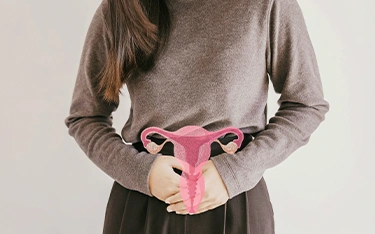FAQs
Yes, hyperthyroidism can lead to complications such as preeclampsia, preterm delivery, low birth weight, and miscarriage if left unmanaged. However, with early diagnosis and consistent treatment, most women can have a healthy pregnancy and deliver a healthy baby.
Hyperthyroidism during pregnancy may cause maternal symptoms like rapid heartbeat, anxiety, or unintended weight loss. In severe cases, it can impair fetal development. Regular thyroid monitoring and appropriate treatment help control symptoms and ensure the safety of both mother and child.
If managed well, hyperthyroidism usually doesn’t have long-term effects on pregnancy. Most women recover fully after delivery. However, thyroid levels may fluctuate postpartum, so regular follow-ups are essential to adjust medication and ensure long-term maternal and newborn health.
Yes, homeopathy is generally safe when prescribed by a trained professional. It can complement conventional treatment by addressing emotional triggers and hormonal imbalances. However, in moderate to severe cases, it should not replace essential allopathic or hormone-based medical care.
Absolutely. Thyroid levels should be checked early in pregnancy, especially during the first trimester. Regular monitoring throughout is crucial to maintain healthy hormone levels, reduce the risk of complications, and support the baby’s brain and nervous system development.




